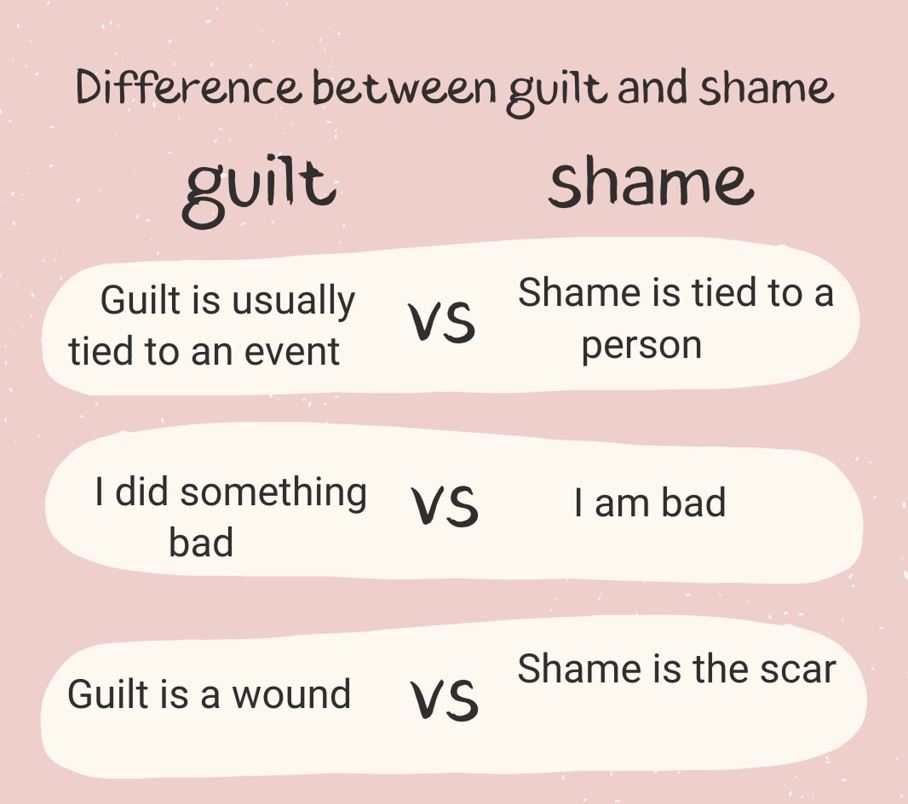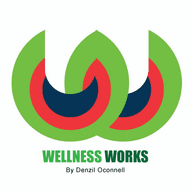What is Guilt?
Each of you reading this article may have experienced the powerful and complex emotion called GUILT sometime or the other! isn’t it?
It is an emotion that arises when you believe you have done something wrong. It could also be when your actions do not match your personal values.
While guilt could be a very healthy emotion motivating you to reflect and make necessary changes, on the other hand – excess or unresolved guilt could take a significant toll on your emotional well-being.
Note to my READERS: If you or anyone else close to you harbors GUILT – you are about to learn an easy manner to resolve and heal yourself! Therefore – read on the rest of the article to know more!

In this article we will explore:
-
What is Guilt?
-
How many types of Guilt are there?
-
How it impacts your emotional well-being?
-
What are the practical steps to overcome Guilt for a healthier, more balanced mind set?
-
Understanding Guilt: Why we Feel it
What is Guilt?
a. What happens to GUILT when left Unchecked?
Guilt can lead to a feeling of anxiety, unworthiness and sometimes even depression. It is a heavy emotional weight to carry and often interferes with daily life, affecting your mental health and overall happiness. For this reason, guilt is directly connected with your moral compass.
b. The Psychological Reasons of Guilt
You will be surprised to know psychologically you feel guilty because you have a sense of responsibility and empathy for others. On one hand it gets triggered when you believe you have done or said something against your own ethics. On the other hand you feel you have let down your close ones. Self-reflection comes along with the feeling of GUILT. It also encourages you to make amends of your behavior or words.
Studies, such as those by Baumeister et al. (1994), found that guilt is tied to empathy and interpersonal sensitivity. For instance, when you accidentally harm others, even unintentionally, you tend to feel guilty because you recognize the pain inflicted on others.
Experimental research further highlights guilt’s impact: a notable study by Ketelaar and Au (2003) showed that participants who felt guilty after making selfish choices in a game were more likely to act altruistically in future rounds. This suggests guilt motivates reparative actions.
Neuroimaging studies also indicate that the brain regions activated during guilt, such as the anterior cingulate cortex, are linked to emotion regulation and social cognition, reflecting the emotion’s role in promoting socially acceptable behavior. Ultimately, guilt is both a personal and societal mechanism, driving individuals to uphold values and maintain positive relationships.
c. Why do we feel Guilty?
You feel guilty when you: hurt others, fail to meet obligations, or even when circumstances are not in your control. It is deeply felt when your actions and values do not match the expectations you have from yourself!
However, your guilt is not always rational. Often you may experience unnecessary or extreme guilt because of: personal insecurities, perfectionism or even societal pressure.
When you understand the reasons for guilt it helps you to recognize whether it serves a positive purpose or if it’s contributing to emotional distress.
Interesting – Isn’t it?
As per studies brain organs like the prefrontal cortex, associated with decision-making and moral reasoning gets activated during feelings of guilt. It suggests a strong cognitive component in evaluating your actions against ethical standards. Thus, guilt acts as an emotional guide, helping you navigate social bonds and moral values.
d. Guilt Vs Shame: What’s the Difference?
Always remember, both Guilt and Shame are emotions that affect your sense of self.
GUILT is the outcome of a specific action, words or behavior. Whenever you feel guilty you believe you’ve done wrong or caused harm.
In contrast, SHAME has deep roots in your image of yourself. You feel shame because you believe there is something wrong with you, rather than your words, actions or behavior. Therefore, guilt and shame are usually used interchangeably.
Examples to Differentiate Between Guilt and Shame:
Guilt said: “I did something bad.” You feel an emotion focused on behavior allowing room for correction and reconciliation. Guilt is a motivator to correct or change yourself in the future.
Shame, on the other hand, said: “I am bad.” It’s an emotion where you focus on your identity. You feel unworthy or inadequate. Shame could be destructive since it affects how you perceive yourself, rather than just your actions.
e. How to overcome Guilt and Shame
When you are unable to resolve guilt and it lingers on and transforms into shame. Moreover, when you internalize the guilt it damages your self-worth and it turns into Shame.
For instance, if you feel guilty repeatedly for a mistake and see it as a reflection of who you are – it converts into shame!
Thus, instead of thinking, “I made a mistake,” you could start believing, “I am a failure.” As a result, it could create long-lasting scars in you.
Important is to recognize the instance guilt turns into shame. To stop it from turning into shame is crucial to protecting your self-esteem and mental health.
Different types of guilt and How they Manifest?
Guilt is not a one-size-fits-all emotion!
Before you identify what you are feeling to understand various types of guilt will help you address the emotion in a better manner.
How many Types of Guilt are there?
Natural Guilt is the most common type of guilt – you experience it when you go against your personal values or social norms. You will be happy to know – it is a healthy type of guilt – as it prompts you to make amends. For example: in case you have hurt someone by your harsh words, you feel guilty naturally and are motivated to apologize and repair the relationship.
On the other hand, Toxic Guilt is made to be bigger than the situation. You tend to build it up due to overthinking, self-blame or comparing yourself to very high standards.
Always, you tend to linger on in the guilty feeling even when you haven’t done anything wrong even after making amends. You could be a victim of toxic guilt if you obsess over past mistakes or take responsibility for things not in your control. As a result, it causes you emotional distress.
Survivor’s Guilt will be experienced when you survive a traumatic event where the others did not.
Most commonly experienced by: survivors of natural disasters, accidents, or warfare. You may feel unworthy and start questioning why you survived and others did not. You could experience deep emotional turmoil as you struggle with feeling responsible for the fate of others. This could happen even when you had no control over the outcome.
Often felt by parents – Parental Guilt is when you feel you are not enough for your children. It could also be a feeling where you are falling short of being the “perfect” parent.
The reason for feeling parental guilt could be: from missing important events, working long hours, or even from making parenting decisions that, in hindsight, seem imperfect. A little percentage of guilt is normal in parenting, however, excessive guilt can trigger anxiety and stress.
Experiencing existential Guilt is a very deep kind of guilt. You could get the guilt due to a sense of not living up to one’s full potential or not being able to contribute meaningfully to the world. It’s tied to a broader philosophical concerns about responsibility, purpose and the meaning of life.
In case you experience existential guilt you may feel regret or remorse for not making most of the opportunities, for neglecting relationships, or for living inauthentic ally.
Apart from the above, you could also feel existential guilt due to feelings of responsibility for global issues like: environment degradation, inequality, etc.
You can even drive a positive change by motivating people to seek greater purpose and alignment with their values. However, if left unchecked, it may lead to feelings of hopelessness or dissatisfaction with life.
How Guilt Affects Your Mental and Physical Health
The Emotional Toll of Carrying Guilt
If you have unresolved guilt it leads to a high emotional impact – leading you to higher levels of anxiety, stress and even depression. Due to prolonged guilt you tend to overthink and indulge in self-blame and negative thinking. Eventually it triggers emotional distress. As a result, your growth is hampered making it difficult to forgive yourself.
Guilt and Anxiety: You could be a victim of Chronic Guilt. Thus, chances are you will feel tense, on edge, or fearful of making past mistakes. Often resulting in long-term anxiety disorders.
Guilt and Depression: When your guilt remains unresolved – you tilt towards lower self-esteem, increased feeling of worthlessness, and a pervasive sense of sadness or hopelessness.
The emotional stress caused by guilt can also affect personal relationships, productivity, and overall mental health, making it harder to enjoy life’s positive aspects. For this reason, addressing and resolving guilt is crucial for maintaining emotional balance and mental wellness.
Physical Effects of Unresolved Guilt
Not just the emotional well-being – unresolved guilt also manifests in physical symptoms. Guilt triggers the body’s stress response, leading to physical ailments.
You will be surprised to know – Prolonged Guilt: causes chronic tension resulting in body aches, headaches and muscle tightness. It is a direct result of the stress caused by constant self-blame and worry.
Insomnia: Another physical symptom of Guilt is the infamous “INSOMNIA.” If you are suffering from guilt you will agree that when you overthink or relive the mistakes – it is difficult to sleep. It is a vicious cycle – the less you sleep the more you add to the cycle of anxiety. With the result both your mental and physical health deteriorate.
Join our founder Acharya Denzil Oconnell who is a world renowned teacher of Sleep Mediation (Yoga Nidra) Breathwork (Pranayam).
Immune System: Unresolved guilt weakens the Immune System. You are now more susceptible to illness. You lean towards unhealthy coping mechanisms, like substance abuse, overeating, social withdrawal. This leads to decline in overall wellness.
Guilt can be addressed through – Therapy, self-reflection, or forgiveness. It will give you an instant relief from the emotional burden you were carrying.
Practical Tips to Overcome Guilt: How to stop feeling Guilty?
How to stop feeling guilty: You must have noticed Guilt is one human emotion never addressed properly. You must have learnt in schools or Universities about how to be truthful and honest. But nowhere in school is it taught how to deal with an emotion like Guilt. Unfortunately, the topic around guilt is often untouched and avoided.
Below are some practical, research backed strategies to overcome guilt. Supported by expert insights from psychologists and health professionals.
Like any other emotion – same goes for Guilt. The First step to overcome guilt is to acknowledge it presence and identify where is originated. As per Dr Brene Brown, a renowned researcher on vulnerability and shame: “self-reflection is crucial to recognising when guilt is tied to actual wrong doing versus internalized feelings of inadequacy.” Through honest self-assessment, you can distinguish between healthy guilt, which drives positive change, and unhealthy guilt, which stems from unrealistic expectations or over-responsibility.
Clinical psychologists also support the practice of naming your guilt and understanding its root cause. By recognizing the specific actions or beliefs that trigger guilt, individuals can begin to address the underlying emotional pain. Dr. Guy Winch, a licensed psychologist, suggests journaling or speaking with a therapist as effective ways to explore guilt and its sources. This form of emotional self-awareness is the best way to stop feeling or overcome guilt.
Self-forgiveness is one of the most important, yet challenging, steps in letting go of guilt. Dr. Kristin Neff, a leading researcher on self-compassion, argues that forgiveness is rooted in the ability to show kindness toward oneself. When people hold onto guilt without practicing forgiveness, they trap themselves in cycles of self-criticism and emotional distress. Neff’s research shows that cultivating self-compassion allows individuals to heal emotionally and move past guilt in a healthier way.
Dr. Fred Luskin, director of the Stanford Forgiveness Project, also advocates for self-forgiveness, stating that forgiving yourself is as crucial as forgiving others. Luskin’s studies have demonstrated that self-forgiveness leads to reduced feelings of guilt, improved mental health, and an increased sense of inner peace. The key is to recognize that everyone makes mistakes and that extending grace to oneself is critical for your emotional recovery. It helps in in understanding how to stop feeling guilt and how to overcome it.
One way to ease feelings of guilt is to take action by making amends, if appropriate. Even though it may be very difficult, reaching out to those you may have wronged and attempting to reconcile can help alleviate guilt.
Studies on reconciliation and emotional healing, highlight the importance of making amends as part of the guilt resolution process. Worthington’s work suggests that seeking forgiveness and taking steps to repair relationships not only helps those who were harmed but also benefits the person carrying guilt by fostering a sense of closure and relief.
You could follow Worthington’s tried and tested approach:
- Admitting wrongdoing
- Apologizing sincerely
- Offering restitution where possible.
In case you want to make amends with close ones who are no longer present, writing letters or expressing regret can be a symbolic way of releasing guilt. It is an age old remedy to overcome guilt.
Neuroscientists and psychologists both agree that mindfulness and meditation are the most powerful tools to manage and release feelings of Guilt. Therefore, mindfulness allows you to observe their emotions, including guilt, without judgment. By practicing mindfulness, you can detach from the weight of guilt and view it with greater objectivity.
Similarly, meditation techniques that focus on self-compassion, such as loving-kindness meditation, have been found to help release feelings of guilt. These techniques, supported by research from Dr. Kristin Neff and others, promote emotional healing by fostering a sense of inner peace and acceptance. Regular meditation can train your mind to let go of guilt, replace it with understanding, and develop healthier emotional habits.
Here are very powerful Affirmations on Forgiveness to Overcome Guilt by our Healer and Founder of Wellness Works – Denzil Oconnell.
Cultivating Positive Habits to Move Beyond Guilt
Once guilt has been addressed, it’s important to focus on developing positive habits that prevent it from resurfacing and promote emotional growth.
Focus on Personal Growth
One of the most constructive ways you can respond to guilt is to use it as a tool for personal growth. Dr. Carol Dweck, known for her work on the growth mindset, emphasizes that mistakes and guilt can be catalysts for learning and self-improvement.
When approached with a growth mindset, guilt becomes an opportunity to reflect, grow, and implement positive changes in behavior. The key is to view guilt not as a permanent state, but as a stepping stone toward a better, more emotionally mature version of yourself.
By reflecting on past actions and the lessons learned, you can transform guilt into motivation for self-improvement. Whether it’s strengthening personal values, enhancing relationships, or setting healthier boundaries, your guilt can be a powerful driver of positive change.
Seek Support from Others
Talking about guilt with trusted friends, family, or a therapist can significantly ease the emotional burden. According to Dr. Susan David, a psychologist and author of Emotional Agility, sharing feelings of guilt with others helps individuals process emotions more effectively. Expressing guilt out loud diminishes its intensity and creates space for understanding and support from those around you.
Therapists, in particular, can offer professional guidance on how to work through guilt and develop healthier emotional patterns. Cognitive-behavioral therapy (CBT) has been shown to help individuals challenge the negative thought patterns that contribute to persistent guilt. Seeking support from others ensures that individuals don’t face their emotional struggles alone, promoting quicker emotional recovery.
Conclusion: Healing and Moving Forward
Overcoming guilt is a journey that requires self-awareness, compassion, and intentional action. By acknowledging guilt and its source, forgiving oneself, making amends where possible, and practicing mindfulness, individuals can release the emotional burden that guilt creates. Focusing on personal growth and seeking support from loved ones or professionals can further promote healing and help individuals move forward with a greater sense of peace and self-worth. The goal is not to eliminate guilt entirely, but to learn from it and use it as a tool for emotional recovery and growth.







